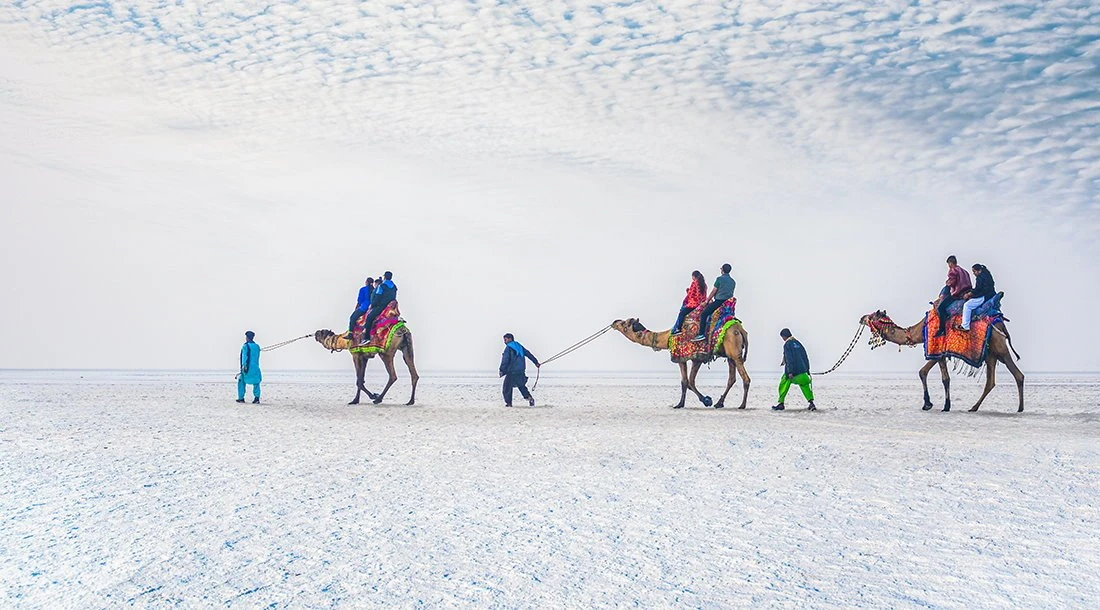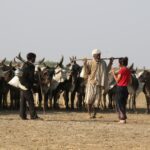Kutch has a certain magic: the silence, the skies, and the soul. But somewhere along the way, that magic is being suffocated by floodlights and air-conditioned tents.
Tent cities are taking over the Rann. What used to be an intimate moonlit experience has become a box on a large highway. To be honest, tent cities are expensive and usually overhyped.
Why not do it differently?
Trade Commercial Chaos for Personal Curations
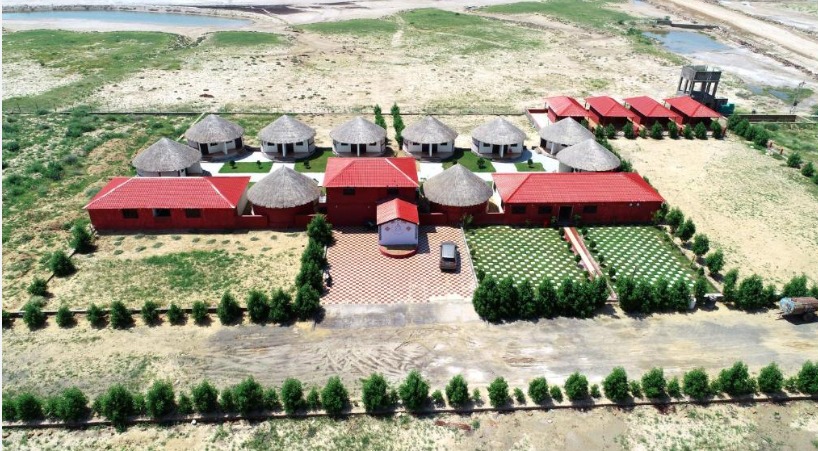
Tent cities might promise cozy lodgings. But do you really have comfort when you are corralled on and off transport with dozens of other travelers on the same bus route and the same rigid 30-minute stop?
With a homestay, you get a room and a story. You get a personally curated itinerary created with care and concern by someone who knows Kutch like the back of their hand. Picture this instead: visiting Nirona village, not to stand outside workshops, but to sit with the last and only remaining Rogan artists as they patiently bring fabric to life.
Or, examining the intricately carved copper bells of Zura, not as a pressured stop, but as a quiet conversation with the family who’s been making them for generations. Homestays help make that happen.
Here is your itinerary that bends around you, not the other way around.
Stay in a Place That’s a Home
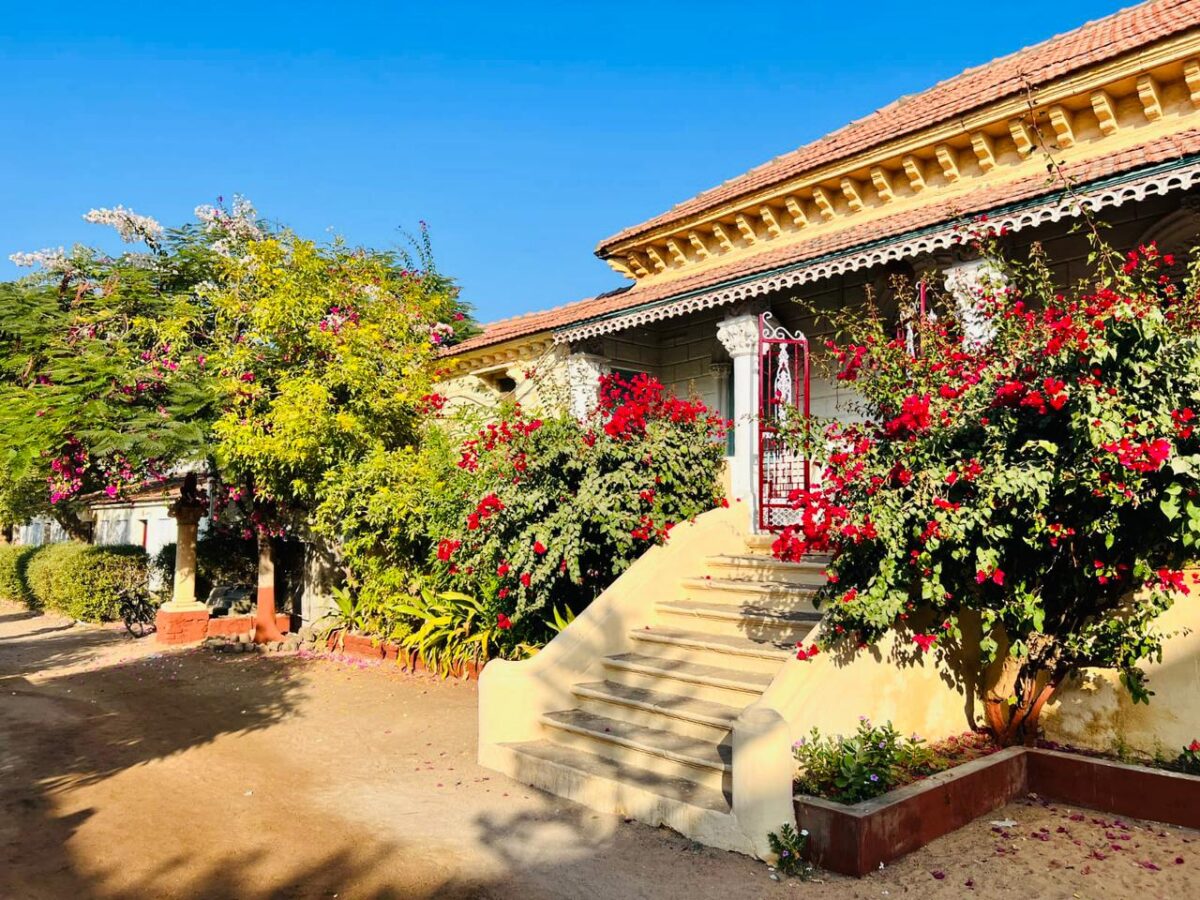
Devpur Homestay, located in a 1905 haveli, belongs to the Jadeja royal family. It is not a “theme stay.” It is the real deal. With antique furniture, fading photographs, and a host who has an interest in more than just check-in time.
It is the only heritage homestay in Kutch. When you stay at Devpur, you are not handed a welcome drink; you are welcomed into someone’s house. You will share stories over Gujarati meals made fresh in the kitchen, walk together in the garden under gulmohar trees, and if you are lucky, your host will take you to a quiet spot in the countryside where no other tourist goes.
The Hidden Corners You’d Never Discover on Your Own
Most tourists drive to Kala Dungar, gawk, look at the view, and come back. What about Lodai? A village with lesser-known but extraordinary lacquer artisans of Kutch, working with wood and color to make spinning tops. Or Tunda Vandh, where the Meghwal women embroider not just textiles but their whole lives into their work?
Tent cities don’t go there. They stay on the map only. But homestays remap it for you.
From weaving studios in Bhujodi to the Ajrakh block printers in Ajrakhpur, homestay hosts guide you with passion. They know when the artisans are free to speak with you; they will suggest you go in the mornings for the best light and even pack you a snack on your way out.
Take It Slow. No one Is Pressuring You.
Have you ever, in silence, watched the salt desert shimmer under a full moon? Not if you’re on a schedule. With a homestay, you set the pace. One day you can watch the sun rise over the White Rann, and another day you relax under a neem tree in a Rabari village, sipping chaas.
In communities like Bhujodi, Nirona, and Bhirandiyara, time feels slower when you’re not being timed. You can take a moment to watch a weaver work, chat with a potter, or just be still and be present in the moment.
This type of slow travel experience can only exist when your host is truly a friend, not a manager.
The Food Speaks for Itself
Do you want the buffet in a plastic tent or fresh bajra rotlas, with freshly churned white butter, served from a traditional Kutch kitchen?
Homestays like those on Raahghar share more than food with you; they share a family tradition. You may have lunch with the host’s grandmother or help to roll theplas for a picnic. You will be eating what the locals eat, when it is eaten.
You will understand the why behind every bite. It is not about having ‘authentic meals.’ It is about having authentic moments.
An Experience That Changes You
When you go to the Living and Learning Design Centre (LLDC) in Ajrakhpur, think of it not as a stop on your museum tour but as an opportunity to understand craft, pride, and tradition. Spend a morning in Khavda, talking to artisans who continue to mold terracotta using the same techniques as their ancestors.
You can visit Kala Raksha, where preservation is a collaboration between communities and culture lovers. Tent cities will not take you here. But your host might.
Kutch is More Than Just the Rann
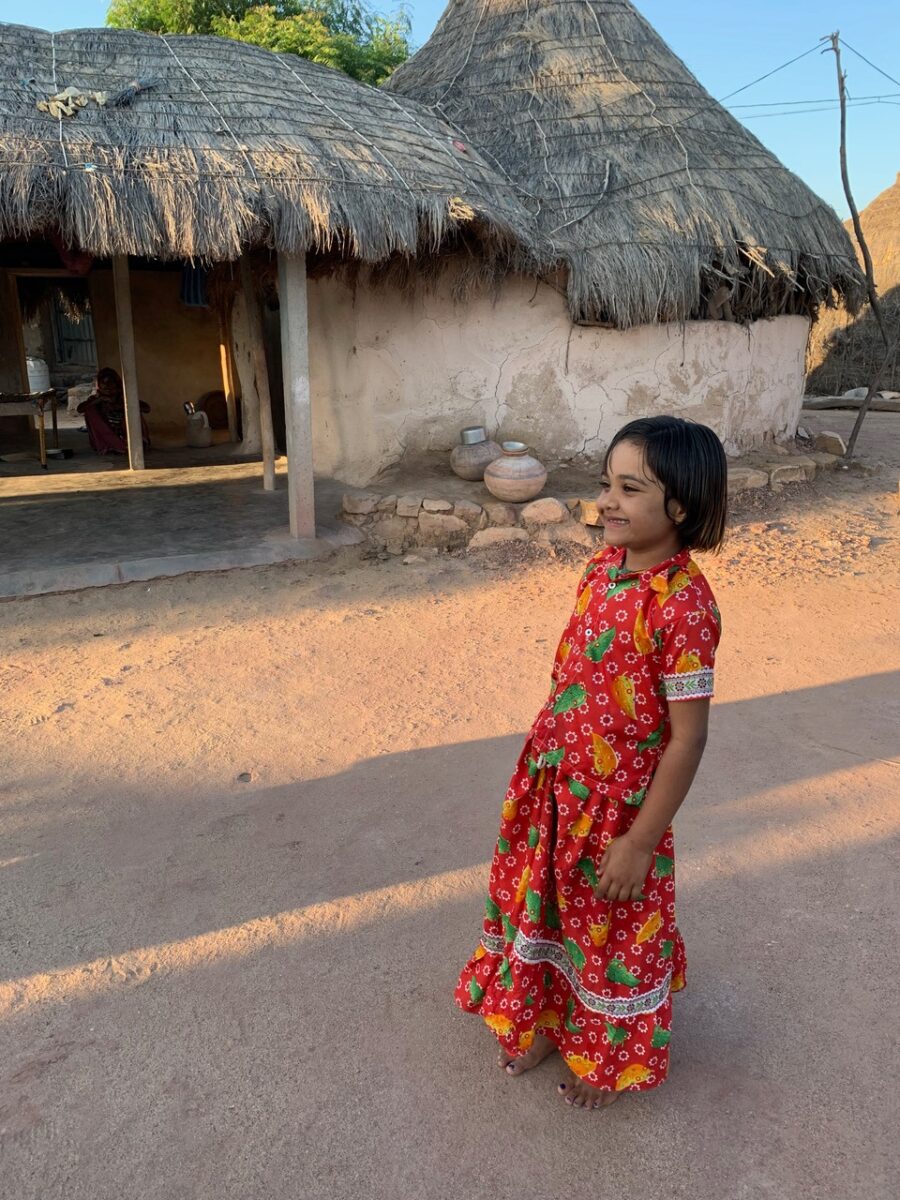
Let that sink in.
Yes, the Rann is great. But so is the drive along the coast to Mandvi, the sound of looms in a dusty Bhujodi, or the mirrors glistening in Meghwal embroidery.
Kutch has a lot of layers. Only those who are willing to travel slower, deeper, and more intentionally see those layers reveal themselves. That kind of travel does not happen in tent cities. It happens when there are conversations on a porch, with a local map on your lap, and your host tells you about a route that has never been written about in a travel blog.
Tent Cities May Provide the View, but Homestays Provide the Vision
Tent cities are certainly packaged views. They are marketed well. They are made easy. But that is why they are forgettable. You might take a few decent pictures, but how much will you really bring back?
Now imagine waking up in a desert haveli, birds chirping outside, breakfast waiting quietly in the courtyard, your entire day planned and ready for you, and not 50 other guests. Having that lasting memory will stay with you.
You will remember that.
Let Kutch Change You
You do not come to Kutch to only dip your toes into the water. You go into the soil of Kutch. There is nothing that could make that happen like a homestay. Skip the tents. Skip the crowds and pick a heritage haveli.
Choose hand-churned butter and slow conversations over the buffet trays or a loudspeaker. When you are done with Kutch, you won’t just leave with pictures. You will leave with stories that only a homestay could have given you.

